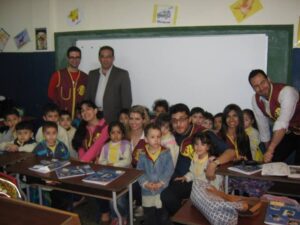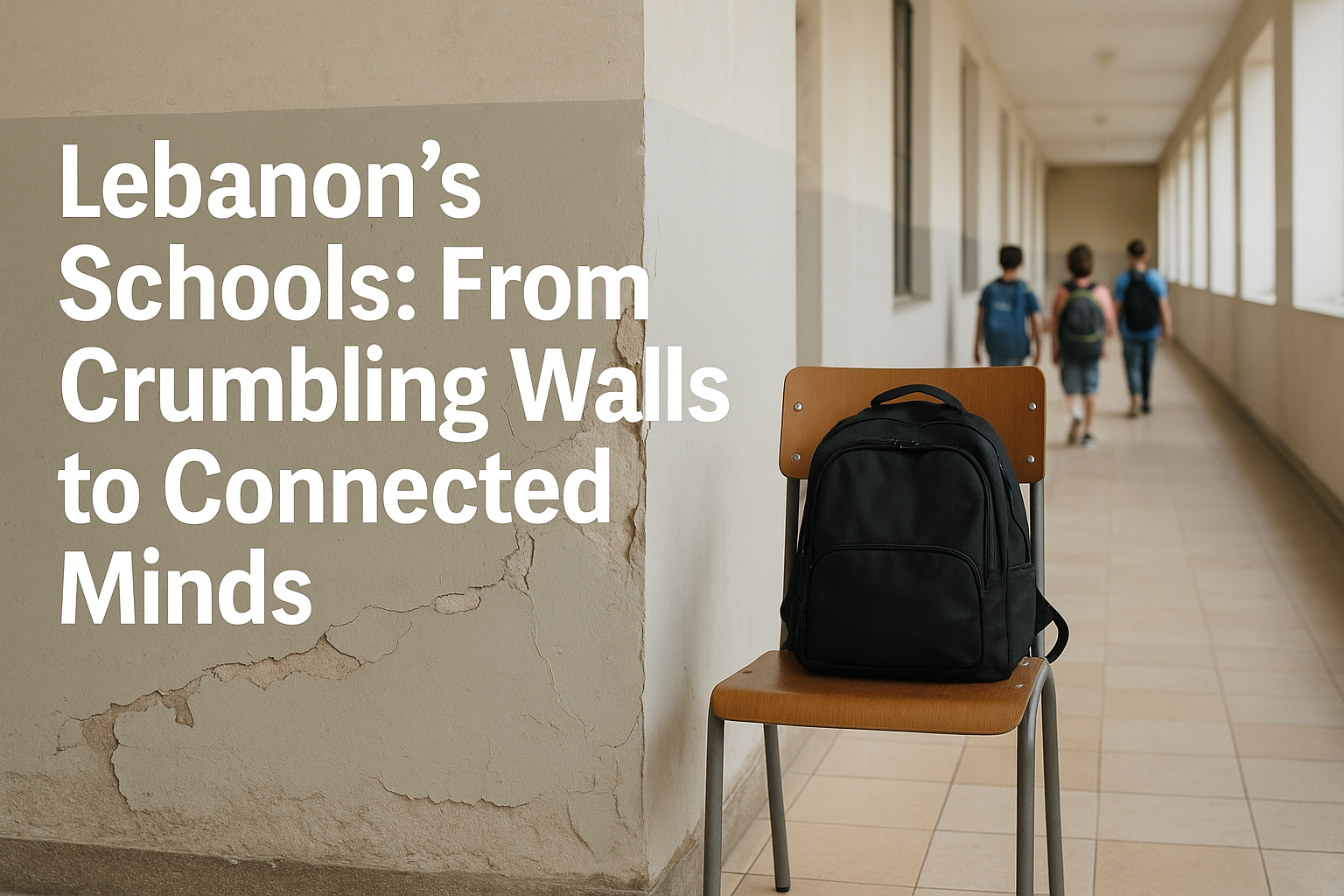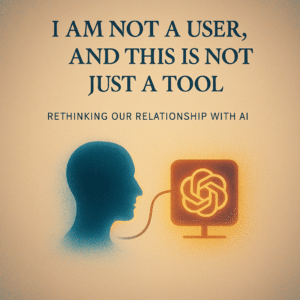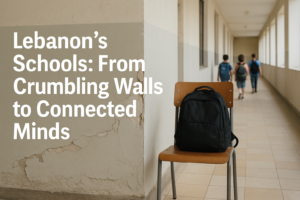In 2014 I visited a modest school in Hamra with fellow volunteers from the Leo Club Beirut Wisdom. There were no proper whiteboards, only painted walls where children scribbled their lessons. The classrooms were divided by half partitions, so teachers and students in one room could hear every word from the next. Most of the children came from families struggling to make ends meet, yet they sat attentively, eager to learn in conditions that would be unacceptable almost anywhere else. That day has stayed with me.


More than a decade later, many schools in Lebanon still face deep challenges. A national survey found that nearly half of public schools suffer from leaks or mold, while some buildings are at risk of collapse. Almost half of schools have no computers in their classrooms, and nearly two thirds lack reliable internet. In the South, the recent conflict destroyed or damaged more than one hundred schools, while hundreds more were shuttered or used as shelters. These are not statistics from a faraway crisis — they describe the daily reality of children who are supposed to be preparing for their future.
It would be wrong, however, to say this is the story of all Lebanese students. In fact, most children are enrolled in private schools, many of which offer strong programs, modern facilities, and pathways to international universities. Schools like IC, Lycée, Mont La Salle, SABIS campuses, and many others set standards of excellence that compete globally. But alongside them, there remain hundreds of thousands of children in the public system whose classrooms lack even the basics. It may not be the majority, but it is enough to shape the country’s future. If we ignore them, we risk widening divisions that Lebanon can no longer afford.

The solution is not to bring elite schools down, but to raise struggling schools up. We can learn from the successes of the private sector, their organization, their emphasis on languages and technology, their investment in modern facilities and adapt these lessons to the public system. Equality does not mean sameness. It means that every child, whether in Baalbek or Beirut, deserves a safe school, a modern curriculum, and a fair chance at dignity.
This reform begins with honesty. A tablet is useless under a leaking ceiling. Before promising digital miracles, we must first make classrooms safe. That means solid walls, healthy air, and buildings that stay warm in winter and cool in summer. Lebanon can embrace modern materials that make this possible. Hemp-lime construction and plasters, already used in schools abroad, create breathable walls that resist mold and improve insulation. Schools built or renovated this way consume far less energy, saving money that can be reinvested into teachers, content, and technology.
Once schools are secure, we can focus on the digital backbone of learning. A unified national curriculum, delivered on tablets or shared devices, would give every Lebanese child the same foundation. Families would see lighter bags and healthier backs. Teachers would receive continuous training. Parents would be able to follow progress in real time. Private schools would still enrich their programs, but public schools would finally stand on equal ground.
As the 2025–26 school year begins, Lebanon can still choose hope. We can rebuild schools safely, connect them to a modern learning system, and give every child the same opportunity to learn with dignity. The child in Baalbek deserves the same chance as the child in Beirut.
I still remember that day in Hamra when children wrote their lessons directly on painted walls. They deserved more then. The children of Lebanon deserve more now.




